Share this article
Newar Artisans & Craftsmen – Guardians of Nepal’s oldest traditions
Kathmandu valley is home to the Newar community, guardians of some of the oldest traditions in Nepal. Among the multi-ethnic populations of Nepal, the Newar Artisans emerged very early with a distinct identity. In Newari language, Kathmandu valley is called Nepa or Nepal. This is what gave, by extension, the name to the country itself.
The Newars are particularly renowned in the Himalayas for their exceptional craftsmanship in the gold and silversmith trade. Their ability to carefully hand chisel precious metal, had won them a favored place in the forbidden city of Lhasa. To this day, the Newars are among the last jewelers to work gold and silver by hand at the cost of long hours of infinitely meticulous work.
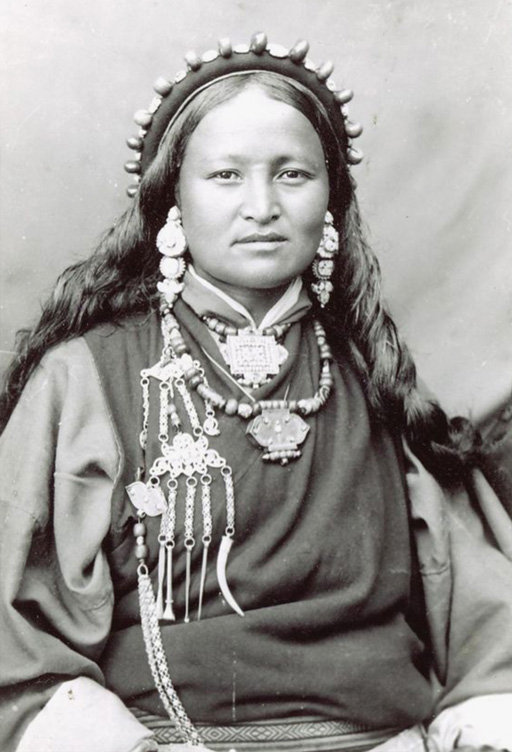
Tibetan noblewoman wearing jewellery traditionally made by Newar artisans
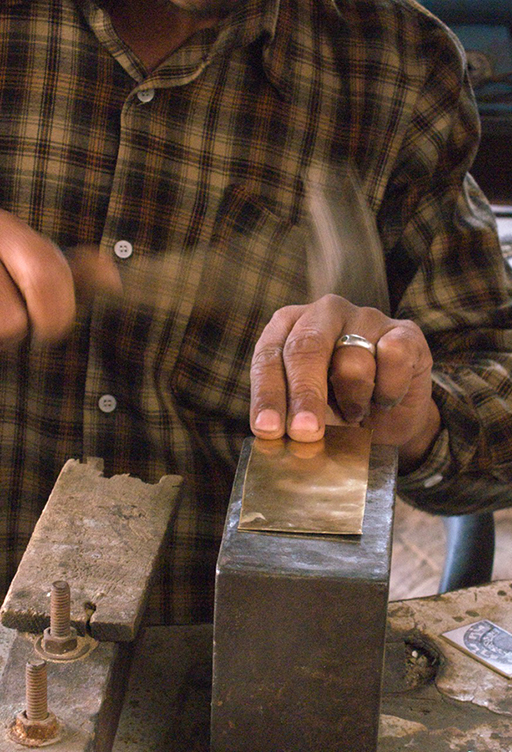
Artisan beating a brass plate which will be hand chiseled to later become a delicate lacework
High Quality Craftsmanship with Handmade Imperfections & Distinctive Uniqueness
Ancestral know-how still exists, such as that of goldsmiths and silversmiths. There are very few countries left in the world where jewellery is still produced by hand, using many different techniques.
In most countries the original piece is handmade then moulded in order to produce all the other pieces, maintaining consistency. However in Nepal, with high quality craftsmanship, each piece is still made by hand, one by one, with all the small imperfections that make them unique.
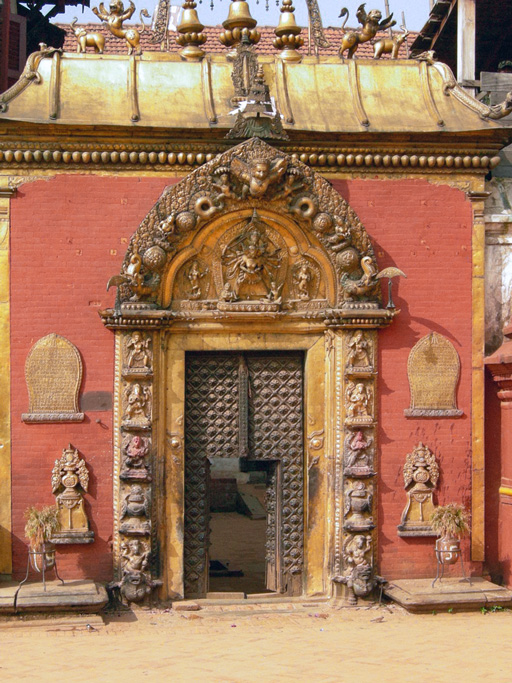
Lu Dhowka – The Golden Gate in Bhaktapur
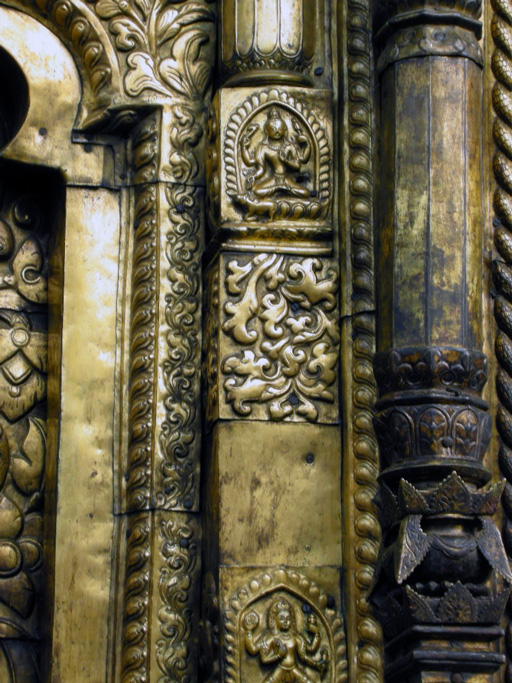
Closeup of a temple brass doorway sculpted by Newar Artisans
The know-how of these goldsmiths is part of their cultural heritage, traditionally passed down from generation to generation and kept within the family. I know of a family of silversmiths who have kept the tradition in the family for over 400 years and are still crafting beautiful jewellery pieces. One of their ancestors was one of other artists who crafted the famous Golden Gate (Lu Dhowka) in Bhaktapur as seen above.
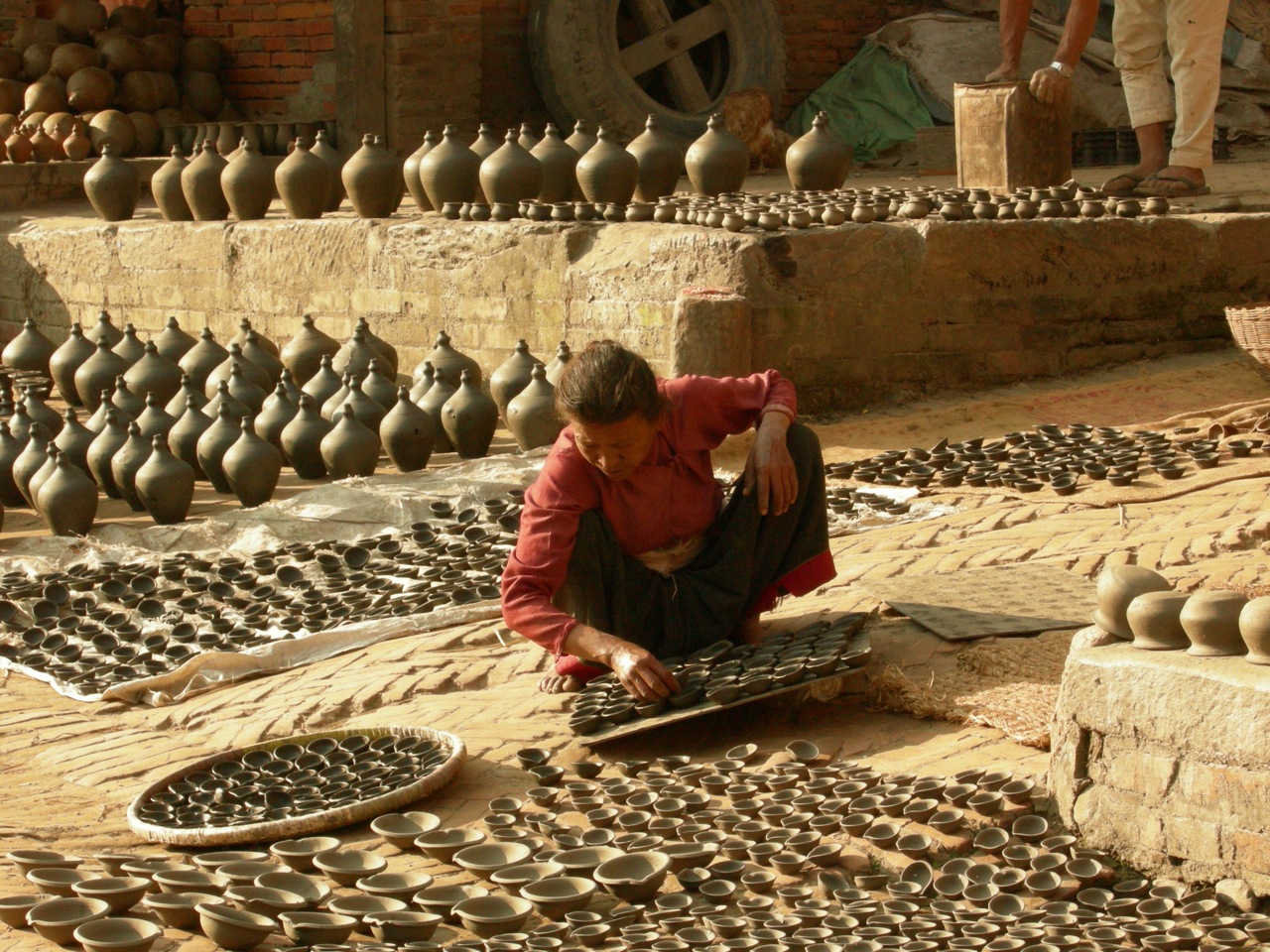
Woman placing her handmade pottery out to dry in the sun
The Newars were builders, architects, sculptors, potters, painters, gold-smiths and silversmiths amongst other trades. It is believed that the Newar architect Arniko conceived the 13th century pagoda-style with superimposed roofs which quickly gained popularity throughout Asia (in Tibet, China and as far as Indonesia).

Durbar Square with its pagoda-style temples and palaces in Patan, one of the three Royal Newar cities of Kathmandu Valley
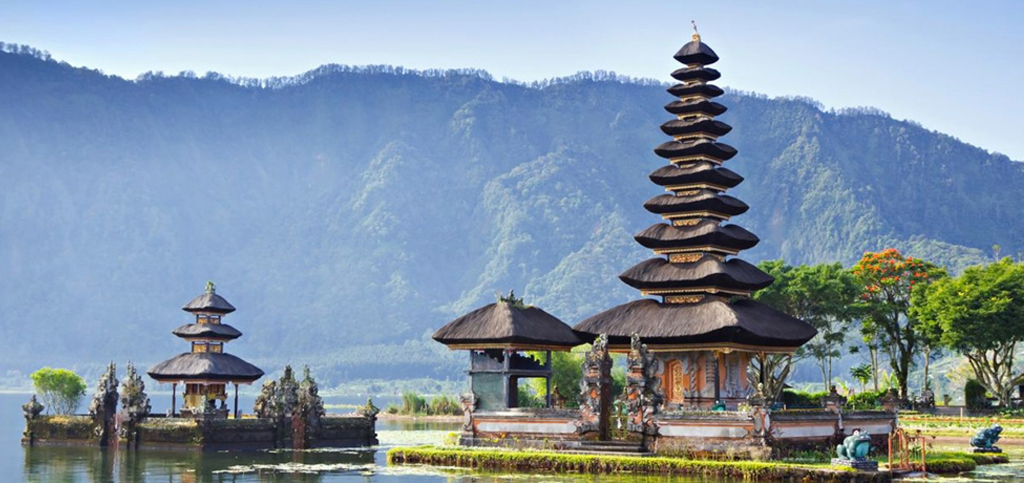
Pagoda temple in Bali
Artistic expression however was never an end in itself. Until today, it is a mean to express spiritual forces within the universe and a medium to give the devotee a visible and tangible form of the sacred. I believe this what gave an added depth to their art, a personal and intimate authenticity.
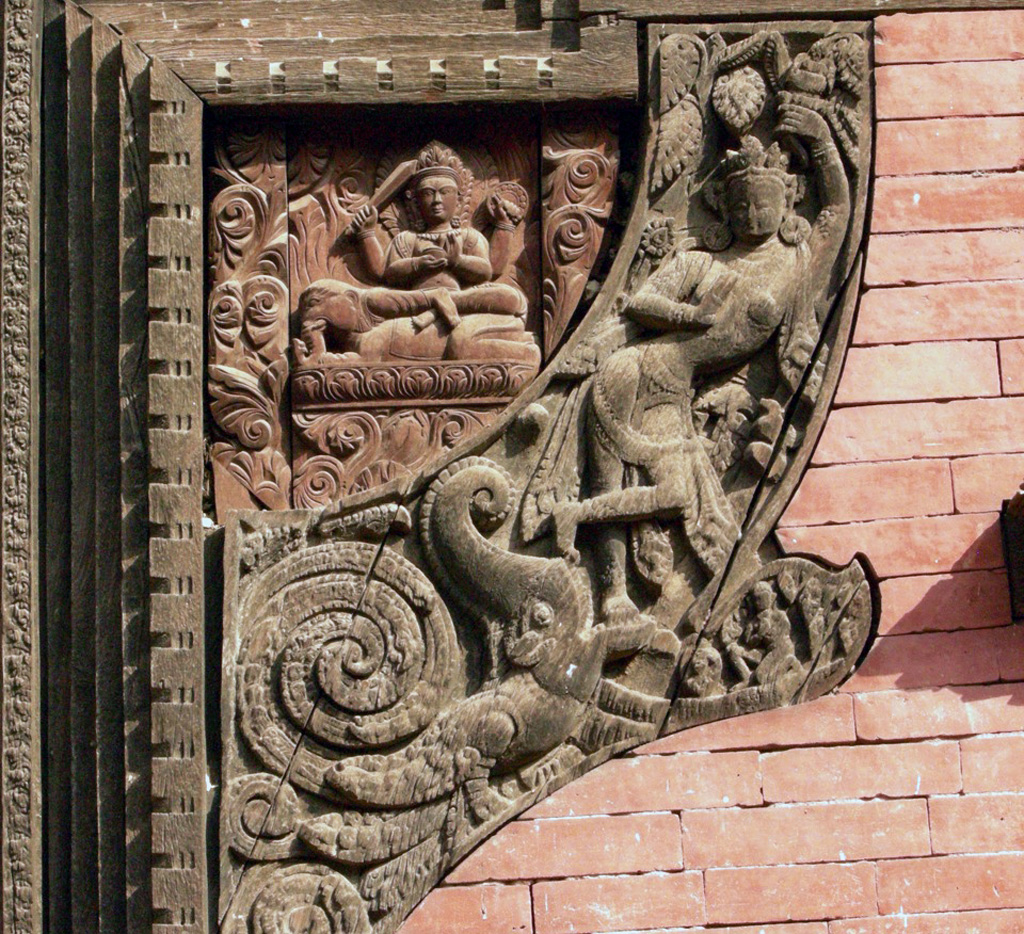
Woodwork traditionally sculpted by Newar Artisans, as seen on traditional doors and temples
Contemporary Designs & Newar Artisans Know-How
I consider a similar approach during my design process. Drawing from ancestral knowledge, I believe in preserving the link to our roots, returning to the fundamentals: the human touch, ancestral knowledge and nature. With simple techniques in mind, I enjoy creating fashionable objects that will be handmade by highly skilled artisans. Thus, withholds the authentic quality and beauty of living things.
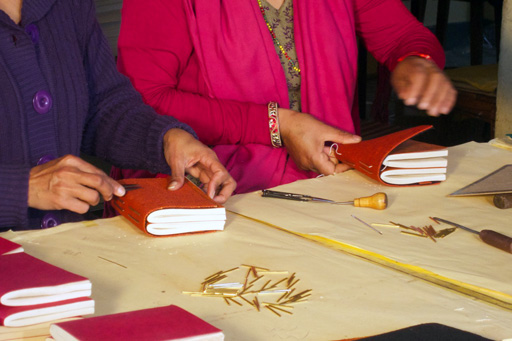
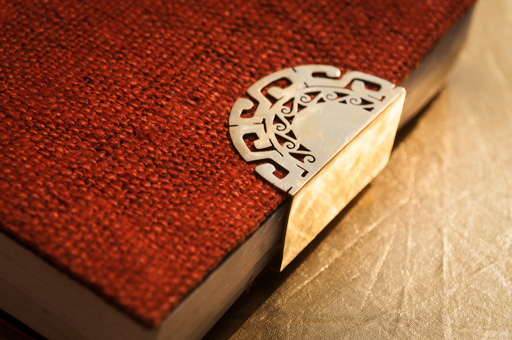
The Salinar Journal from Marina Vaptzarova
See my video: The Birth of a Journal
About Marina Vaptzarova
From Himalayan traditions to the trends of Paris Marina Vaptzarova designs celebrate a meeting of the old and the new. Marina Vaptzarova’s exquisite collections are the expression of dedicated quality and exceptional craftsmanship. The brand actively works towards maintaining a sustainable trade on an environmental, economical and social level.
Share this article

